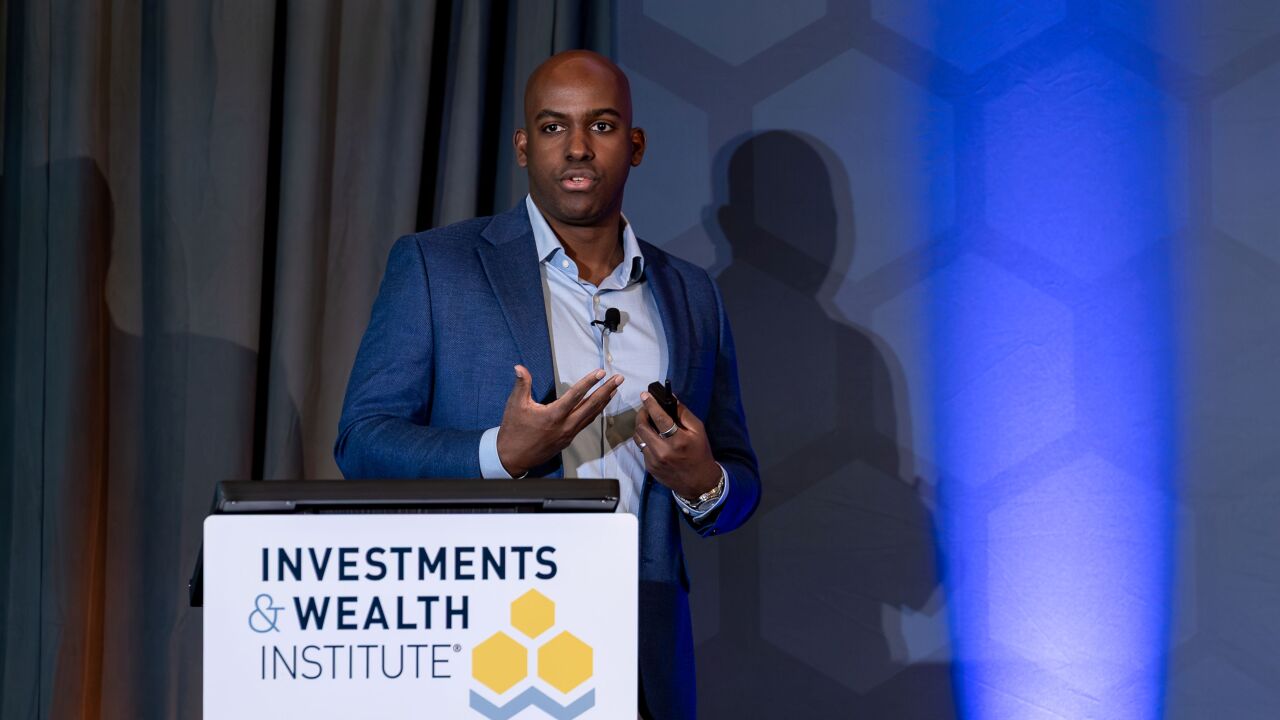PHOENIX – The fight for an expanded fiduciary duty is moving to the SEC — but it by the time the regulator moves forward, it almost might not be necessary, according to fiduciary advocates.
Because firms will be seeking to comply with the Department of Labor’s rule in the coming months, many may adopt a fiduciary stance across all accounts they serve, in order to simplify compliance operations.
"When you look at the full-service firms, I think they would find it very challenging…. from a compliance standpoint,” FPA Chairman Ed Gjertsen says. “They would want to get everyone in the same box.”
"When you look at the full-service firms, I think they would find it very challenging"
In addition, the debate about the rule has spread beyond planners and regulators. For some, that suggests that public consciousness about fiduciary duty might also be on the rise.
"I hope, as a planner, that… consumers will begin to ask questions across the board, even if it isn't their IRA accounts," FPA President Pamela Sandy says.
But even with those factors in the favor of fiduciary advocates, FPA leaders say that encouraging the SEC to move forward on its own fiduciary rule — which Chairwoman White has repeatedly said is a priority — is top of their agenda.
"If there is a time to move, then now would be a good time to do so," says Karen Nystrom, director of advocacy at the FPA.

GROWING CLOUT
Convincing the regulator to move forward may be easier than it was in the past (the SEC has been authorized to craft a fiduciary rule since the Dodd-Frank Act passed in 2010).
Convincing the SEC to move forward may be easier than it was in the past
Senior leaders of the CFP Board and FPA – which joined forces with NAFPA to form the Financial Planning Coalition – say that lawmakers and regulators are increasingly heeding the concerns of planners, and, as an example, point to
"It has been very satisfying to know that we have the ability to sit down with the Department of Labor and that they will listen to us, listen to our concerns as professionals," Sandy says.
Marilyn Mohrman-Gillis, managing director of public policy and communications at the CFP Board, told attendees of the FPA Retreat here that their efforts to get the ear of influential players in Washington had paid off, as evidenced by the fact that the coalition was asked by the DoL to participate in the first day of hearings on the rule last August.
"We spoke from the experience of our CFP professionals, who have been delivering a fiduciary standard of care since 2007," she said.
The modifications made, some at the urging of the coalition, had benefits beyond making the rule more operational for financial advisers, Mohrman-Gillis said.
"I think the good news is that major financial services firms have recognized the [DoL] for the changes that they made," she said. "They are switching from being opponents to supporters."

MORE WORK TO BE DONE
Sandy and other FPA leaders say that long-term efforts, such as the association's annual advocacy day in which planners get facetime with their elected representatives, have been critical to establishing relationships and educating lawmakers about the issues.
"If something comes up, we don't want to go in and start yelling at people. We want to be the voice of reason. That's one of the great things about our advocacy day in D.C. We go there and get to know them," says Gjertsen.
"We have a long history of being an advocate for the consumer," he says. "They are our clients, and we want to protect them."
Nystrom says that the association's efforts are also critical in informing some lawmakers about what planners actually do.
Republicans in Congress vowed to continue the battle to stop the rule from going into effect.
"When we go into advocacy days, by and large, the first thing we do, is distinguish ourselves from other financial services professionals because our elected officials don't know the difference," she says.
FPA leaders say that the national advocacy days, with the next one scheduled for June 22 in Washington, is in some sense the culmination of the group's efforts at the state level.
"It's one of the best things that the FPA does on an annual basis to raise our profile and the voice of our professionals," Sandy says.
Among the most important issues this year will be the SEC's potential fiduciary rule-making, Nystrom says.
FUTILE FIGHT?
Of course, the fiduciary rule still faces some opposition. Immediately following the unveiling of the final regulations, Republicans in Congress
On Wednesday, President Barack Obama promised to veto the bill, should it reach his desk.
"The final rule reflects extensive feedback from industry, advocates and members of Congress and has been streamlined to reduce the compliance burden and ensure continued access to advice, while maintaining an enforceable best-interest standard that protects consumers. It is essential that these critical protections go into effect," the White House Office of Management and Budget said in a statement.
To Nystrom, Obama's stance isn't a surprise.
"I don't think this rule would be where it is now if the president hadn't decided to make it one of his legacy issues," she says.





